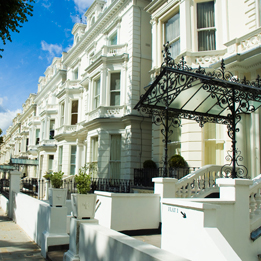First time buyer guide
The purchase of a house for the very first time can be very challenging. However knowledge and experience are the keys to successful property transactions. To help you demystify the process and get the most out of the purchase, we’ll examine what you’ll need to consider before you buy, what you can expect from the buying process itself, and some handy tips to make life easier after you purchase your first home. Below are steps to follow in acquiring a house :
-
Planning your home purchase: One of the keys to making the home-buying process easier and more understandable is planning. You’ll need to determine is what your long-term goals are and then how home ownership fits in with those plans In doing so, you’ll be able to anticipate requests from lenders, lawyers and a host of other professionals. Furthermore, planning will help you discover valuable shortcuts in the home-buying process.
-
What type of home best suits your needs?
You have several options when purchasing a residential property: a traditional single-family home, a townhouse, a, or a multi-family building with two to four units. Each option has its pros and cons, depending on your home ownership goals, so you need to decide which type of property will help you reach those goals. -
What specific features will your ideal home have?
While it’s good to retain some flexibility in this list, you’re making perhaps the biggest purchase of your life, and you deserve to have that purchase fit both your needs and wants as closely as possible. Your list should include basic desires, like neighbourhood and size, all the way down to smaller details like bathroom layout and a kitchen that comes with trust-worthy appliances. -
How much mortgage do you qualify for?
Before you start shopping, it’s important to get an idea of how much a lender will actually be willing to give you to purchase your first home. Lenders often assess the loan amount they are willing to offer by assessing the multiple of a borrowers annual income and the value of the house. See “How much mortgage can I borrow” for more information
-
If you are financially prepared
Homes and financing are closely intertwined. Financing is the difference between the purchase price and the down payment, commonly referred to as debt or the mortgage. In fact, a number of programs now allow purchasers to buy real estate with nothing down. In addition to a down payment, purchasers also need cash for closing costs (the final costs associated with closing the loan).
On the other hand, sometimes a bank will give you a loan for more house than you really want to pay for. Of course, looking at the monthly payment is also important, along with how much down payment you can afford, how high the property taxes are in your chosen neighborhood, how much insurance will cost, how much you anticipate spending to maintain or improve the house, and how much your closing cost will be.
Having considered the factors stated above, we advise that you engage the service of an experienced Housing solicitor to help you locate homes that meet your needs and are within your price range. Once you’ve chosen a home to buy, we can assist you in negotiating the entire purchase process, including making an offer, getting a loan, and completing paperwork. We can protect you from any pitfalls you might encounter during the process.
Please call us on 0207 183 0084 or email us on info@olaleslie.com for a fixed fee conveyancing quotation and to ask us about any reservations or queries that you may have; we are always happy to assist.
Ayesha Leslie, Partner
Ola Leslie Solicitors
Copyright








Leave A Comment